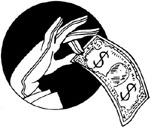
The Deepest Bias of the American People?
CATHOLICISM: A CULTURE WITH NO CASH VALUE
In his book American Catholicism (1956), Msgr. John Tracy Ellis recounts the remark once made to him by Harvard historian Arthur Schlesinger Sr.: “I regard the prejudice against your Church as the deepest bias in the history of the American people.” If we think of bias against individuals, we might be inclined to doubt Schlesinger’s words. After all, even in the days of the robust anti-Catholicism of the Know-Nothings, the American Protective Association, and the Ku Klux Klan, Catholics were less likely to be physically assaulted than were African-Americans; Catholics were never legally enslaved, nor did an entire bloc of states enact laws segregating Americans by religion. But it was not Catholics as individuals that Schlesinger primarily had in mind. He said, in fact, “your Church,” and it is Catholicism as a religion and as an organizing principle for a culture toward which the American people harbor such a deep bias.
Some of the historic religious prejudices against the Catholic faith are fairly obvious. Basing themselves on an unhistorical and selective use of the biblical text, Protestants accused, and many still accuse, Catholics of errors on questions of the nature of the Church and her authority, justification, grace, the sacraments, the Blessed Virgin Mary, and so on. On a more popular level, Protestants who see Catholics incensing a statue of Mary or carrying it in procession are likely to be provoked to charges of idolatry. And you can still find repeated the shopworn falsehoods that Catholics are prohibited from reading Holy Scripture, must pay money to receive absolution in the Sacrament of Penance, or can obtain permission to sin by buying an indulgence. Old prejudices die hard.
But we must dig deeper if we are to uncover the full significance of Schlesinger’s remark. First, however, it is necessary to grasp an essential point: Catholicism is not simply a set of religious doctrines or a way of “being religious.” It tends to create a culture. In fact, every religion creates a culture that reflects its doctrinal tenets and shapes the whole of life and society. As Fr. George Bull wrote in the periodical Thought (Sept. 1938):
In recent years, Catholics have become increasingly conscious of the clash between Catholicism as a general culture, and the culture of the world around them. The work of men like Belloc, Maritain, Christopher Dawson and others, has shown that we differ not in religion alone, but in the whole realm of unspoken and spontaneous things, which color even our daily routine.
Thus, it is “as a general culture,” as much as a religion, that Catholicism can clash with the dominant culture of a society. And so it is in the United States.
You May Also Enjoy
The dominant liberal-progressive historians of the past 100 years have "photoshopped" the Haymarket event into their picture of America as an intolerant plutocracy.
As a human being and a Jew, I frequently feel real fear living in a post-Christian country. A Christian country? Barely, and not for long, unless we do something about it.
If interreligious connectedness is not recognized and cherished at a time when religion itself is imperiled, we are in a bad way.

